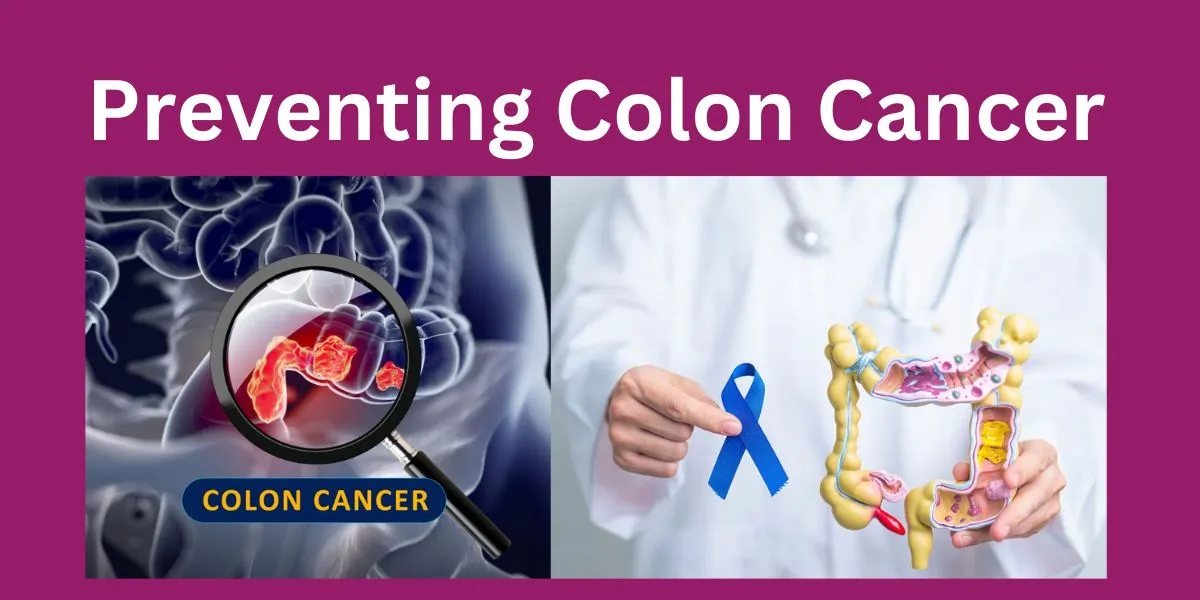Colon cancer might sound scary, but the good news is that it’s largely preventable. By making smart lifestyle choices and staying on top of screenings, you can significantly lower your risk. Let’s dive into everything you need to know about keeping your colon healthy and reducing your chances of developing colon cancer.
What Is Colon Cancer?
Colon cancer, also known as colorectal cancer, starts in the colon or rectum. It usually begins as small, benign clumps of cells called polyps that can develop into cancer over time. The key to prevention is catching these polyps early before they become a bigger problem.
Why Should You Care About Colon Cancer?
Colon cancer is one of the most common types of cancer worldwide, but it’s also one of the most preventable. Early detection and lifestyle changes can make a huge difference. Plus, taking steps to prevent colon cancer can improve your overall health.
Understanding the Risk Factors
Age Matters
Most cases of colon cancer occur in people over the age of 50. However, younger individuals aren’t completely off the hook. Awareness and early action are crucial for everyone.
Family History
If someone in your family has had colon cancer, your risk is higher. This is especially true if a close relative was diagnosed at a young age.
Lifestyle Choices
What you eat, how much you move, and whether you smoke or drink alcohol all play a role in your risk of developing colon cancer. Let’s explore these factors in more detail.
Healthy Eating Habits
Fiber Is Your Friend
Fiber-rich foods like fruits, vegetables, and whole grains help keep your digestive system running smoothly. They also reduce your risk of developing polyps.
Cut Down on Red and Processed Meats
Consuming large amounts of red and processed meats has been linked to an increased risk of colon cancer. Opt for lean proteins like chicken, fish, or plant-based alternatives.
Stay Hydrated
Drinking plenty of water is essential for maintaining a healthy colon. Dehydration can lead to constipation, which isn’t good for your colon.
The Importance of Regular Exercise
Get Moving
Physical activity not only helps you maintain a healthy weight but also reduces your risk of colon cancer. Aim for at least 150 minutes of moderate exercise per week.
Simple Ways to Stay Active
Don’t worry, you don’t need to become a gym rat. Walking, cycling, gardening, or even dancing around your living room can help keep you active.
Screening Saves Lives
Why Screening Is Crucial
Screening tests can detect polyps before they turn into cancer. They can also catch colon cancer early when treatment is most effective.
Types of Screening Tests
- Colonoscopy: The most thorough test, allowing doctors to see inside your colon and remove polyps.
- Fecal Occult Blood Test (FOBT): Detects hidden blood in your stool, which can be a sign of polyps or cancer.
- Flexible Sigmoidoscopy: Similar to a colonoscopy but only examines the lower part of the colon.
When to Start Screening
Most people should start screening at age 50, but if you have a family history or other risk factors, your doctor might recommend starting earlier.
Maintaining a Healthy Weight
The Link Between Obesity and Colon Cancer
Being overweight or obese increases your risk of developing colon cancer. Excess body fat can lead to inflammation and insulin resistance, which are risk factors for cancer.
Tips for Healthy Weight Management
- Balanced Diet: Focus on whole foods, lean proteins, and plenty of fruits and vegetables.
- Regular Exercise: Stay active and make it a part of your daily routine.
- Mindful Eating: Pay attention to portion sizes and avoid overeating.
Kick Bad Habits to the Curb
Quit Smoking
Smoking is linked to an increased risk of colon cancer. If you’re a smoker, quitting is one of the best things you can do for your health.
Limit Alcohol Intake
Heavy alcohol consumption is another risk factor. Stick to moderate drinking—up to one drink a day for women and two for men.
The Role of Vitamin D and Calcium
Benefits of Vitamin D
Vitamin D helps regulate cell growth and may reduce the risk of colon cancer. Sun exposure and foods like fatty fish and fortified milk are good sources.
Calcium’s Role
Calcium may protect against colon cancer by promoting healthy cell growth in the colon. Include dairy products, leafy greens, and calcium-fortified foods in your diet.
The Power of Probiotics
Gut Health and Colon Cancer
Probiotics, found in foods like yogurt and fermented vegetables, promote a healthy gut microbiome. A balanced gut can help reduce inflammation and the risk of colon cancer.
Managing Stress
Stress and Your Gut
Chronic stress can negatively affect your digestive health and potentially increase your risk of colon cancer. Finding healthy ways to manage stress is crucial.
Stress-Relief Techniques
- Exercise: A great stress-buster that also keeps you physically healthy.
- Meditation and Mindfulness: These practices can help calm your mind and improve your overall well-being.
- Hobbies and Social Activities: Engaging in activities you enjoy and spending time with loved ones can be great stress relievers.
The Importance of Sleep
How Sleep Affects Your Health
Lack of sleep can lead to inflammation and other health issues that may increase your risk of colon cancer. Aim for 7-9 hours of quality sleep each night.
Tips for Better Sleep
- Stick to a Routine: Go to bed and wake up at the same time every day.
- Create a Relaxing Environment: Keep your bedroom dark, quiet, and cool.
- Limit Screen Time: Avoid screens at least an hour before bedtime.
Listening to Your Body
Know the Warning Signs
Being aware of the symptoms of colon cancer can help you catch it early. These include changes in bowel habits, blood in the stool, abdominal pain, and unexplained weight loss.
When to See a Doctor
If you notice any unusual symptoms, don’t ignore them. Early diagnosis and treatment can save lives.
Conclusion
Preventing colon cancer involves a mix of healthy lifestyle choices, regular screenings, and staying informed about your risks. By taking proactive steps now, you can greatly reduce your chances of developing colon cancer and enjoy a healthier life.
FAQs
1. How often should I get screened for colon cancer?
Most people should get screened every 10 years starting at age 50. If you have risk factors, you may need more frequent screenings.
2. Can a healthy diet alone prevent colon cancer?
While a healthy diet can significantly reduce your risk, it’s not a guarantee. Combining good nutrition with regular exercise and screenings is the best approach.
3. Is colon cancer hereditary?
Yes, a family history of colon cancer can increase your risk. Genetic factors play a role, especially if a close relative was diagnosed at a young age.
4. What are the early symptoms of colon cancer?
Early symptoms can include changes in bowel habits, blood in the stool, abdominal discomfort, and unexplained weight loss. However, many people have no symptoms in the early stages.
5. Can I reduce my risk of colon cancer by exercising?
Absolutely! Regular physical activity helps maintain a healthy weight and reduces your risk of colon cancer and other chronic diseases.










